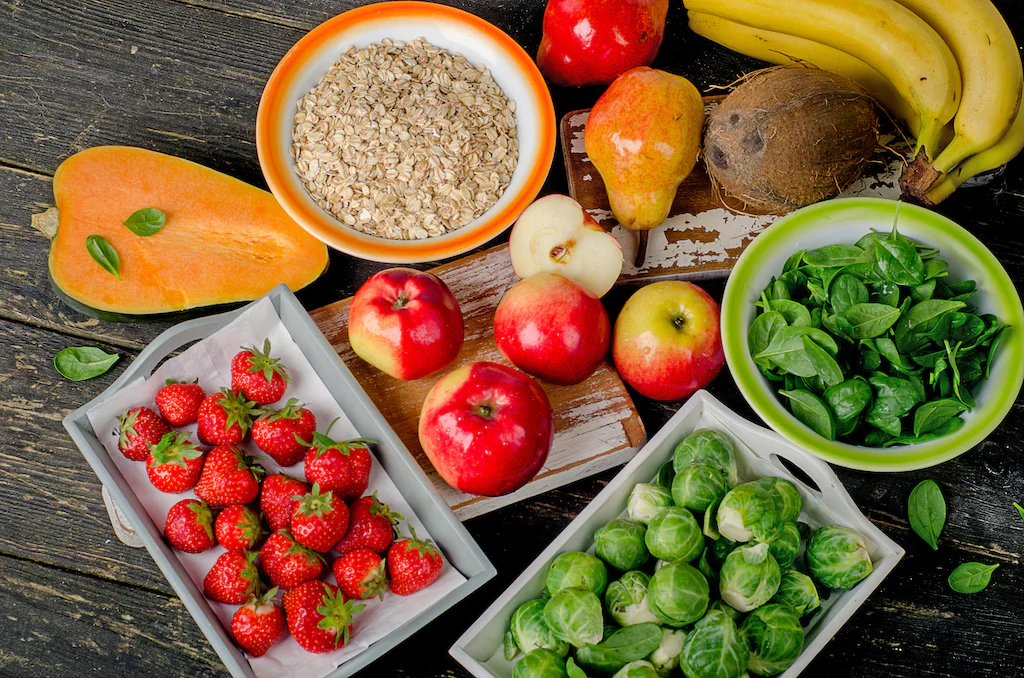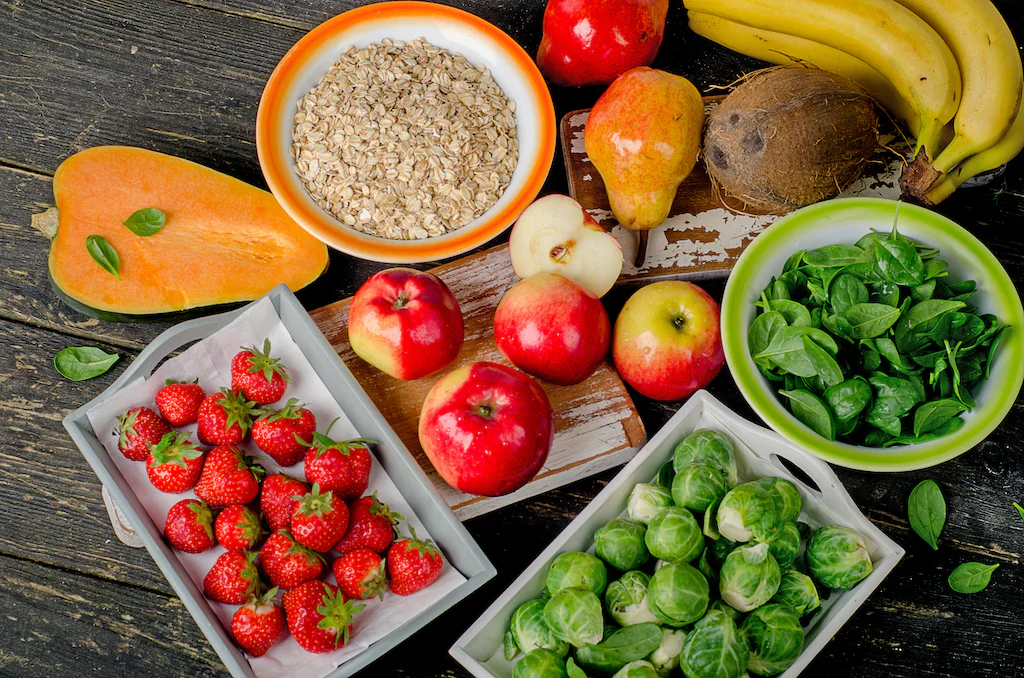Contents
- 1 Starting Small with Healthy Eating Tips
- 2 Focus on Whole Foods
- 3 Stay Hydrated and Listen to Your Body
- 4 Balance is the Secret Ingredient
- 5 Planning Ahead with Healthy Eating Tips
- 6 Don’t Skip Breakfast
- 7 Include More Fruits and Vegetables
- 8 Smart Snacking Habits
- 9 Cooking at Home for Better Control
- 10 The Role of Portion Control in Healthy Eating Tips
- 11 Building Long-Term Habits
When people talk about living a better lifestyle, Healthy Eating Tips always come up first. Eating healthy isn’t about strict diets or depriving yourself of your favorite meals—it’s more about balance, moderation, and making smarter choices every day. The way you eat can affect your energy, mood, and even your long-term health, so paying attention to your diet really matters.
Adopting Healthy Eating Tips helps your body get the nutrients it needs to function properly. It’s not about cutting out everything delicious, but rather finding healthier versions of what you already love. Whether you want to lose weight, boost your energy, or simply feel better, the foundation starts with good food choices.
Starting Small with Healthy Eating Tips
The idea of changing your eating habits can feel overwhelming, but the best way to begin is to start small. You don’t have to completely transform your diet overnight. Try adding fruits to your breakfast, switching soda for water, or having a salad with your lunch. These small steps are part of practical Healthy Eating Tips that make a big difference over time.
Consistency is more important than perfection. You’ll find that when you make gradual changes, your taste buds and habits start to adapt naturally. Soon, you’ll crave fresh food instead of processed snacks, and that’s a sign you’re on the right track toward sustainable healthy eating.
Read More: Effortless Style: How to Rock a Simple Daily Outfit
Focus on Whole Foods
One of the simplest but most powerful Healthy Eating Tips is to focus on whole, unprocessed foods. These include fruits, vegetables, nuts, whole grains, and lean proteins. Whole foods are packed with vitamins, minerals, and fiber that keep you full and energized throughout the day.
Processed foods, on the other hand, often contain added sugars, unhealthy fats, and preservatives that don’t do your body any favors. Try to cook more meals at home using natural ingredients. When you control what goes into your food, you’re automatically making healthier choices.
Read More: How to Be More Confident in Daily Life
Stay Hydrated and Listen to Your Body
It might sound simple, but staying hydrated is one of the most underrated Healthy Eating Tips. Many people mistake thirst for hunger, leading them to eat when all they really need is a glass of water. Keeping a reusable water bottle nearby can remind you to drink regularly throughout the day.
Listening to your body is just as important. Eat when you’re hungry, stop when you’re full, and try not to eat out of boredom or stress. Mindful eating—paying attention to your food without distractions—helps you enjoy meals more and avoid overeating.
Read More: Easy Ways to Reduce Stress Daily
Balance is the Secret Ingredient
When it comes to Healthy Eating Tips, balance is everything. Your body needs carbohydrates, fats, and proteins to function properly. Instead of cutting out certain food groups completely, learn how to include them in moderation. For example, carbohydrates from whole grains provide steady energy, while healthy fats from avocados or olive oil support brain health.
It’s also okay to enjoy a slice of cake or some pizza once in a while. Depriving yourself completely can lead to binge eating later. The key is portion control—enjoy your treats, but make sure they’re balanced with nutritious meals the rest of the day.
Read More: How to Overcome Fear and Anxiety
Planning Ahead with Healthy Eating Tips
Meal planning is one of the most effective Healthy Eating Tips to stay on track. When you plan your meals ahead of time, you’re less likely to grab fast food or unhealthy snacks in a rush. Spend a little time each week preparing ingredients or even full meals that are ready to go.
Keep healthy snacks within reach, like cut fruits, nuts, or yogurt. That way, when hunger strikes, you already have something nutritious waiting for you. Having a plan not only saves time but also helps you make intentional food choices rather than impulsive ones.
Don’t Skip Breakfast
They say breakfast is the most important meal of the day, and that’s true for anyone following Healthy Eating Tips. A balanced breakfast jump-starts your metabolism, improves concentration, and prevents overeating later in the day.
Instead of sugary cereals, opt for options like oatmeal, eggs, or smoothies packed with fruits and greens. These give you lasting energy and keep you full longer. If you’re short on time, a banana with peanut butter or a cup of yogurt with granola works just fine.
Include More Fruits and Vegetables
You’ve probably heard this a thousand times, but eating more fruits and veggies really is one of the golden rules of Healthy Eating Tips. They’re low in calories but high in nutrients, helping you get your daily dose of fiber, vitamins, and antioxidants.
Try to include colorful vegetables in every meal. The more colors on your plate, the more variety of nutrients you’re getting. Smoothies, salads, stir-fries, or even soups are easy ways to add more produce to your diet without feeling bored.
Smart Snacking Habits
Snacking isn’t bad—it’s how you snack that matters. Smart snacking is a crucial part of Healthy Eating Tips because it keeps your metabolism active and prevents overeating at main meals. Choose snacks like nuts, boiled eggs, sliced fruits, or hummus with veggies instead of chips or cookies.
Pay attention to portion sizes. Even healthy snacks can add up if you eat too much of them. Try using small bowls or containers to control your portions. That way, you satisfy your hunger without going overboard.
Cooking at Home for Better Control
Cooking at home gives you complete control over your meals, and it’s one of the most practical Healthy Eating Tips. You can experiment with flavors, choose fresh ingredients, and adjust recipes to fit your health goals. Plus, cooking can be relaxing and fun, especially when you try new dishes.
When you cook, you can limit salt, sugar, and unhealthy oils. You can also portion meals properly and avoid hidden calories that often sneak into restaurant food. Making your own meals doesn’t have to be complicated—simple recipes made with fresh ingredients can be both nutritious and delicious.
The Role of Portion Control in Healthy Eating Tips
Even when you’re eating healthy food, portion control still plays a huge role. Eating too much of anything, even something healthy, can lead to excess calories. One of the best Healthy Eating Tips is to use smaller plates and bowls. This visual trick helps you eat less without feeling deprived.
Try to eat slowly and enjoy every bite. It takes about 20 minutes for your brain to realize you’re full, so slowing down gives your body time to send those signals. You’ll be surprised how often you feel satisfied with less food when you take your time.
Building Long-Term Habits
The ultimate goal of Healthy Eating Tips is to build habits you can sustain for life. Forget quick fixes or fad diets—focus on making small, realistic changes that last. Start by swapping refined grains for whole grains, drinking more water, and eating more veggies. Over time, these little steps turn into a lifestyle.
It’s also important to remember that everyone’s body is different. What works for one person may not work for another. Listen to your body, adjust as needed, and find your own version of a balanced, healthy routine that makes you feel good inside and out.




